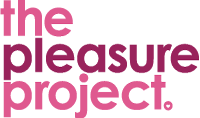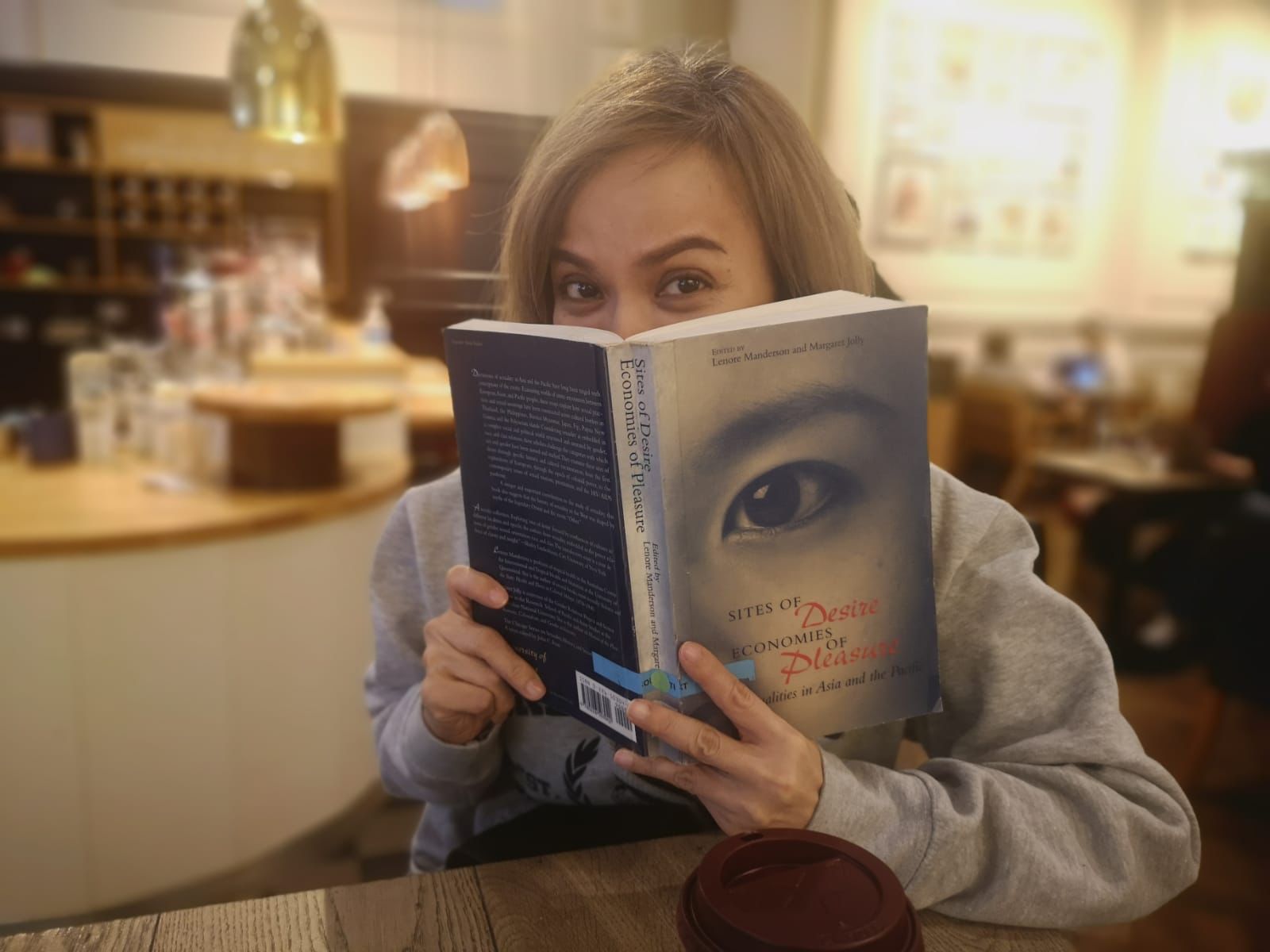Welcome back to our pleasure blog. Today you’re in for a treat, our Pleasure Fellow Ana P. Santos has written a fabulous, thought-provoking blog post all about her pleasure advocacy work and ✨THE PLEASURE REVOLUTION✨. Get comfy and enjoy the amazing, sex-positive words of Ana P. Santos. We wouldn’t expect anything less from one of our amazing fellows ❤
Make Way for The Pleasure Revolution
A clitoris showed up on my Facebook feed and though I am the proud owner of one, I was never happier to see it.
The post was about the tinggil, the Filipino word for clitoris. The tinggil was presented not as a dreary anatomical drawing, but illustrated as a happy fun-loving organ with feelings. Because that’s what the clitoris is: an organ filled with thousands of nerve endings that exists solely as a pleasure point.
Before I go any further, indulge me a bit and wiggle your tongue around the word “tinggil” for a minute. Place an emphasis on the first syllable “ting” and let the last syllable roll out of your mouth in an exhale.
Isn’t it delicious?
The pleasures of the “tinggil” are the focus of the new DKT TRUST Pinay campaign, “Yes, please” which puts female pleasure front and centre. As a condom and birth control pill manufacturer, DKT is in the business of marketing the pleasures of sex, but this campaign dares to depart from the usual formula of marketing sexuality in a number of ways. The most obvious is the focus on a woman’s sexuality, highlighting the often overlooked fact that a woman can access pleasure by herself just by knowing her body. A penis or a partner with a penis are optional. Secondly, sex and pleasure are not framed as a couple–preferably heterosexual–activity. Lastly, the campaign features sex-positive artwork created by young feminists–male and female–who represent the glorious gender diversity of pleasure.
For a pleasure activist and sex-positivity advocate like myself, this is the stuff back-arching orgasms are made off.
Breaking free from the binaries of sexuality
I am ecstatic about the current discussions about positive sexuality in my country, the Philippines, but the focus on pleasure as part of positive sexuality rather than separate from it is trending all over the world. Last month, the New York Times reported on women bringing sex education to the Arab world through Instagram. Nour Emam got over the hurdle of figuring out how to pronounce “clitoris” in Arabic and established one of the leading platforms for sex education in the Arab world.
The floodgates of pleasure have opened, breaking the rigid binary representation of sexuality as either a medical matter premised on disease prevention or a subject of erotic titillation for bodies that are young, skinny, free from disability, and preferably heteronormative.
This is such a long way from the days when I wrote a sex column for a men’s magazine and editorial guidelines prevented me from saying “sex” and “orgasm”. Imagine all the fun words that I couldn’t use. I think that was the only men’s magazine that did not have a blow job. : )
But that tells you the only way sex could be talked about then: with restraint, and I’m not talking about handcuffs or leather here. This was the era when going to the public health clinic meant being assaulted by giant photos of close up shots of gonorrhoea. Even now, just thinking about those images makes me involuntarily tighten my pelvic muscles and clamp my thighs together.
Now, as one of the 12 Pleasure Fellows selected from all over the world, I am part of a motley group of purpose-driven rebels on a mission to inundate Instagram, TikTok, books, and YouTube videos with sex-positive, diverse, and inclusive representations of pleasure that intersect with disability, queer gender identities, and geographical borders.
Included in this pleasure tribe is Leeza Mangaldas, one of India’s foremost sex-positive voices on the internet. Leeza’s IG feed is brimming with candid information about sex that is both factual and fun. In the UK, Damian Weatherald founded his own sex toy story which specializes in accessible products made to enhance the sex lives of disabled people. In South America, Jaime Adorni who chairs the non-profit Sochisex or Sociedad Chilena de Sexualidades (@sochisex), launched a comic strip campaign to advocate safe sex practices for men who have sex with men. In Honduras, Laura Tomas started the grassroots NGO TabuTabu, which will work on a chatbot that will deliver sexuality education to women through WhatsApp.
From sexual revolution to pleasure revolution
A claim to pleasure as a right and self-determined experience is driving this era’s sexual revolution. The international global health community is taking notice. The World Association for Sexual Health released the Declaration for Sexual Pleasure which recognizes that sexual pleasure is “the physical and/or psychological satisfaction and enjoyment derived from shared or solitary erotic experiences, including thoughts, fantasies, dreams, emotions, and feelings” and calls for the promotion of sexual pleasure in legal and health policies as an essential component on sexual rights.
In addition, the Pleasure Project has designed 7 Pleasure Principles to inspire and support individuals and organizations on their mission to centre sex-positive pleasure-based approaches to sexual health. One of the principles is Love Yourself or the importance of being kind to yourself and others to create a pleasure-inclusive world. This nicely sums up how we need to divest ourselves of the shameful and negative notions of sex that we have long been exposed to. This wave of the pleasure revolution calls us to embrace our sexuality as part of our identity, not just parts of our body.
Ana P. Santos is a pleasure activist/journalist who writes, talks and thinks about sex so much for work that she has to remind herself to have it every once in a while. She has a postgraduate degree in Gender (Sexuality) from the London School of Economics. Follow her sex positivity on Sex and Sensibilities.com and Twitter at @iamAnaSantos.
Although the Pleasure Fellow scheme was funded by DKT International, this blog post is editorially independent.



